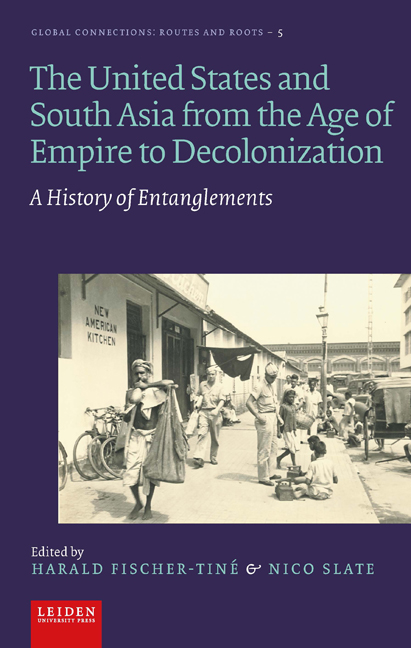 The United States and South Asia from the Age of Empire to Decolonization
The United States and South Asia from the Age of Empire to Decolonization Published online by Cambridge University Press: 07 January 2025
Abstract In the summer and fall of 1857, American magazines and newspapers began printing details of a widespread rebellion among native Indian soldiers (called sepoys) against British rule. News of the uprising and of British reprisals shocked American readers not just in terms of their staggering violence, but also insofar as supposed inferiors had managed to carry out an elaborate and at least temporarily successful conspiracy against a European power. In their responses, American commentators confronted two downsides of imperial ambition: first, that the colonized could not be so easily dominated as some had assumed; and second, that efforts at reasserting such elusive control could cost an imperial power in moral or reputational terms. US writings on India in 1857–1858, then, represent a crucial if understudied moment of dissent in the nation's own shift toward imperialism, as British blunders and atrocities dimmed Americans’ own luminous fantasies of global wealth and power.
Keywords: Sepoy Mutiny, Indian Rebellion of 1857, US imperialism, Christian missionaries, Jessie Brown, Dion Boucicault
Walt Whitman's 1871 poem “Passage to India” celebrates three of the era's signal engineering feats—the laying of the transatlantic telegraph cable (“eloquent gentle wires” in Whitman's rendering) in 1858; the completion of North America's transcontinental railroad in 1869; and the opening of the Suez Canal later in the same year. These infrastructural advances—“our modern wonders,” the poet calls them—accelerated the pace of travel and communication, but for Whitman they also subtended an expansive American presence abroad, a rebirth, in his framing, of the Age of Exploration, with North Americans this time figuring as agents rather than objects of inquiry. In a poem that seems willfully to ignore the national catastrophe (the American Civil War, that is) that formed the subject of the poet's collection Drum-Taps, published just six years earlier, Whitman here heralds the United States’ international emergence with an exuberance that mirrors his expressed faith in human beings’ capacity to control and reshape the earth itself.
As the poem's title suggests, of the three wonders, the Suez Canal most pressingly commands Whitman's attention. In his rendering, this newly dug passage to India completes Christopher Columbus's earlier gambit, which sought readier access to South Asian spices and other commercial ventures in the East but instead eventuated in European empires and genocidal campaigns in the so-called New World.
To save this book to your Kindle, first ensure [email protected] is added to your Approved Personal Document E-mail List under your Personal Document Settings on the Manage Your Content and Devices page of your Amazon account. Then enter the ‘name’ part of your Kindle email address below. Find out more about saving to your Kindle.
Note you can select to save to either the @free.kindle.com or @kindle.com variations. ‘@free.kindle.com’ emails are free but can only be saved to your device when it is connected to wi-fi. ‘@kindle.com’ emails can be delivered even when you are not connected to wi-fi, but note that service fees apply.
Find out more about the Kindle Personal Document Service.
To save content items to your account, please confirm that you agree to abide by our usage policies. If this is the first time you use this feature, you will be asked to authorise Cambridge Core to connect with your account. Find out more about saving content to Dropbox.
To save content items to your account, please confirm that you agree to abide by our usage policies. If this is the first time you use this feature, you will be asked to authorise Cambridge Core to connect with your account. Find out more about saving content to Google Drive.